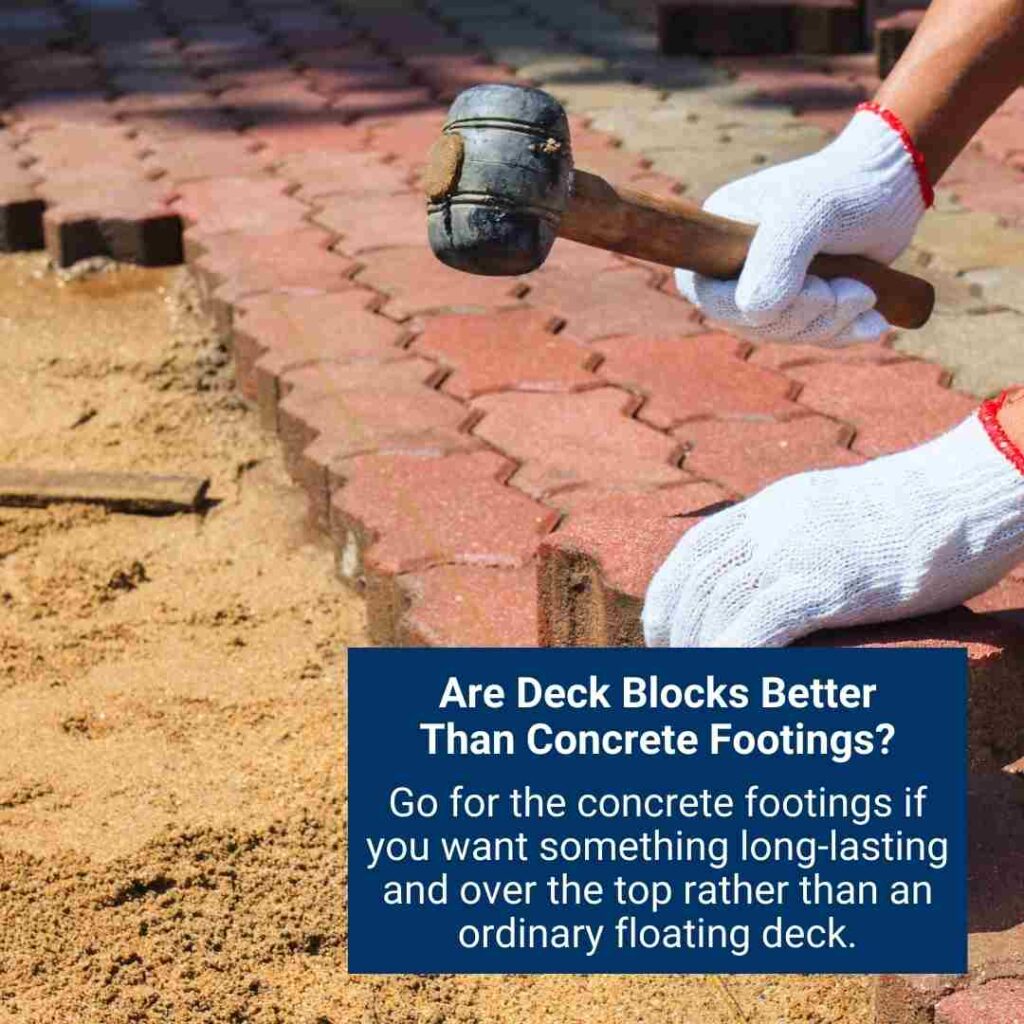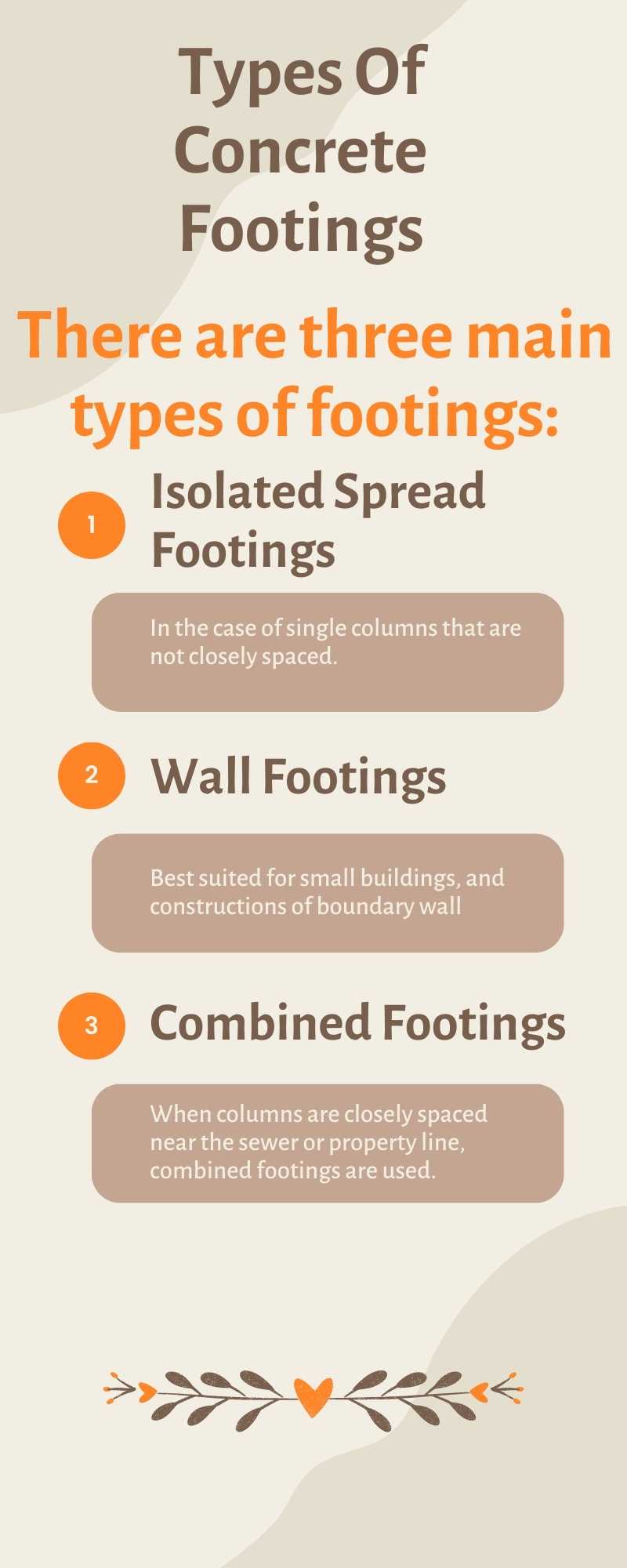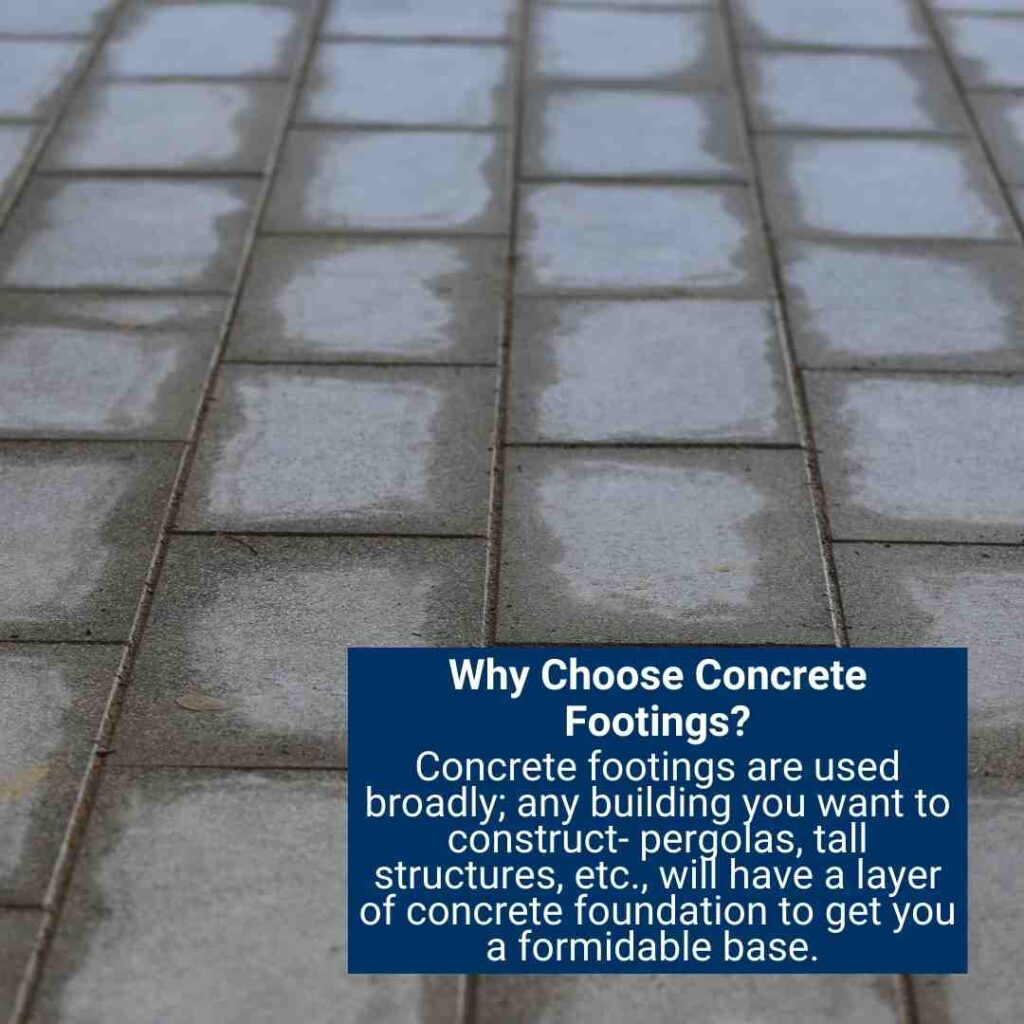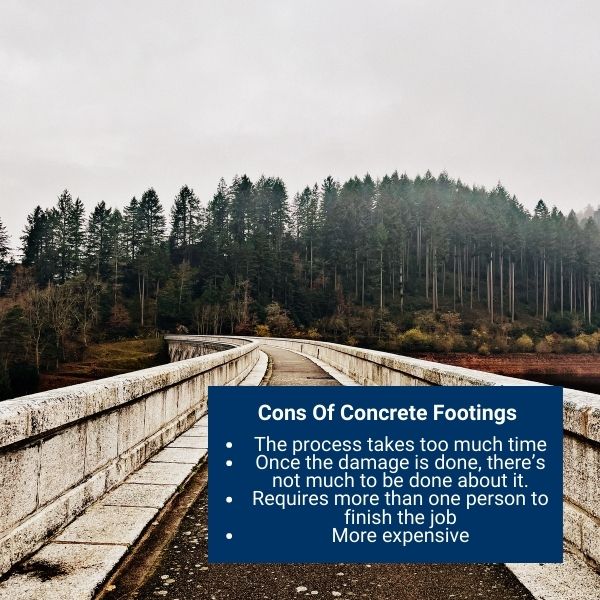Laying a solid deck foundation means investing in deck blocks or concrete footings. But, you might want to learn more about the difference between both to reach a final verdict.
Stay tuned because there are some exciting discoveries for you to make.
With the new invention of deck blocks, the spotlight on concrete footings has shifted slightly. Let’s find out if the hype is worth it.
While concrete footings offer a sturdy foundation and can provide the support that stays over the years, deck blocks are cheaper plus provide a more straightforward construction approach. They allow even amateurs to come up with savvy new DIY decks.
Have you been looking to revamp your outdoor deck, which looks like it could fall off any day?
Choosing between deck blocks or concrete footings can be a hassle, considering you do not want to invest in something like this again in a few years.
Let’s find the perfect option that fits your vision and sits well with your wallet too!
Are Deck Blocks Better Than Concrete Footings?
Using concrete for buildings and different structures is an old practice. Walking by a construction site, you can always see mixing trucks combining water and cement to form concrete.

Even with ambitious people who take on passion projects like deciding to build decks for themselves, the usual convention has been to use concrete piers and footings.
With the introduction of deck blocks, there has been much debate over what to choose in such matters.
Before you decide which one is better among the two, it is essential to know what the terms stand for to get a clearer picture.
Also Read: How To Lay Decking On Grass
What Are Deck Blocks
Does the idea of a floating deck intrigue you?
Well, nowadays, deck blocks are being used extensively in their construction. They are precast concrete blocks that keep the log beams upright to support the structure.
Types Of Deck Blocks
There has been a new advancement after the conventional deck blocks: Tuffblocks!
This innovation is making hits everywhere. Check out some of its unique features down below:
- High Strength
- Ultra-high UV rating
- Prevents moisture buildup
- Safety from termites
They are lighter than the average concrete deck blocks and give a much better finish and look.
What Are Concrete Footings
These are made from mixing cement and water and kept in place with the help of rebars.
A concrete footing supports the foundation and prevents it from settling.
Now that you have gone through the basics, it is time to dive into more contrasting differences between the two. Take your time because, as they say, the stronger the foundation, the prolong the deck’s life!
Types Of Concrete Footings
Concrete Footings have to vary depending on the places they need to be used and the structure of the buildings.

Also Read: How Can You Build a Deck Without Concrete? Step by Step Guide
There are three main types of footings:
Isolated Spread Footings
Useful in the case of single columns that are not in close alliance.
Wall Footings
Best suited for small buildings, and constructions of boundary wall.
Combined Footings
Used when columns are close to each other, especially near the sewer or property line.
Why Choose Deck Blocks?
As the blocks are already-formed complete units, they are easier to handle.
For small to medium-sized decks, anyone having basic level knowledge about carpentry can build them.
Moreover, deck blocks can be cheaper than concrete footings considering your location.
It also requires less labor, so you don’t need to pay extra for the workers.
Most localities approve using deck blocks, and building a standard deck would not require a permit to begin your construction.
Deck blocks are known not to decay and are also corrosion-resistant so that they can provide support for your structures for a very long time.
Deck blocks have frequent use in creating sheds and floating decks.
However, where there are numerous advantages of deck blocks, there are some downsides as well:
Cons Of Deck Blocks
- Because deck blocks are manufactured elsewhere and require transportation to the site, they can incur many defects on the way and might not suit your needs.
- You cannot use them where the ground can sink, the soil is susceptible to frost, or the area is highly windy.
- Do not support much weight.
- Requires planning and equal perfect spacing between the block, so the weight gets equally distributed.
Also Read: Should You Power Wash A Deck?
Why Choose Concrete Footings?
Concrete footings are used everywhere in construction, showing how much support they can provide to a structure. They offer excellent stability and can handle a lot of weight.

As cement is feasible to get, there can never be a shortage of concrete.
Compared to deck blocks which are still new, concrete footings have been in use for ages, and workers know exactly how to use them. It prevents any faults made by the crew and ensures a smooth work environment.
The concrete is poured on-site, which prevents defects that are usually a problem in the case of deck blocks, carried to the site after manufacturing.
Concrete footings have a wide range of usages. Any building you want to construct, pergolas, tall structures, etc., will have a layer of concrete foundation to get you a formidable base.
Even though it is suitable for different cases, there are instances where you can face problems:
Cons Of Concrete Footings

- The process takes too much time.
- Once any damage occurs, there’s not much to be done about it.
- Requires more than one person to finish the job.
- More expensive.
- It takes more time to wait for the concrete to dry and set.
This shows that there are two cases where one has the upper hand over the other:
If you want to create something permanent and heavy requiring more support, go with concrete footings.
On the other hand, if you want a cheaper, temporary, DIY plan, then deck blocks are the ones for you.
Conclusion:
After a detailed overview of both deck blocks and concrete footings, it is easy to say which one best suits your requirements.
Deck blocks are cheaper and work well for most areas and designs.
However, go for the concrete footings if you want something long-lasting and over the top rather than an ordinary floating deck.
Also Read: Can You Install Trex Decking In The Winter

